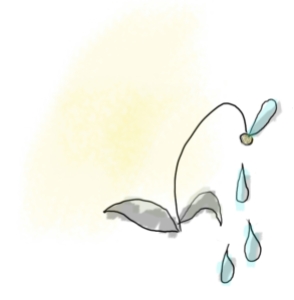
And by weird, I mean it in the contemporary sense, which is bizarre, strange, a bit nutty.
However, I read a study recently where its authors propose that dreams are also weird (my word not the authors) in the word’s more historical sense, which is supernatural, a la the Weird Sisters and/or Weird Tales.
And by supernatural (again, my word not theirs), I mean it in its literal sense, or at least in the-word-defines-its-meaning sense, which is beyond nature…
Or at least nature as we I know it.
And by beyond nature as I know it, I mean portals to other dimensions of being (their words not mine).
To wit:
This paper seeks to elucidate dreams’ profound effects on our psychological landscape, shaping our perceptions, behaviours, and perhaps even ontological orientation. It aims to contribute to a deeper understanding of consciousness, challenging the boundaries between subjective and objective reality, and opening avenues for further interdisciplinary research into the mystique of the dreaming mind. Through this exploration, we aim to decipher dreams’ content and potential significance as portals to other dimensions of being (my emphasis, not theirs) inviting us to reconsider the essence of reality as experienced through the dream state.
Dreams as Portals to Parallel Realities and Reflections of Self by Dave Leong and Oxana Zinych, December 18, 2023
It amazes me how we humans are forever trying to find meaning from our dreams, as bizarre, strange, and nutty as they often are. And if they aren’t weirding us me out, then they are either befuddling me or scaring the bejeezus out of me. Rarely do I get one of those heavenly lucid flying dreams or any other kind that is wholesome and uplifting to the soul.
Don’t get me wrong, I’m not complaining. I actually enjoy having weird, befuddling, spooky dreams; and I appreciate them as one of those intriguing and mysterious spices of life. What I do complain about is how fleeting their details are. It is so frustrating to wake up knowing I just had an epic dream, but not being able to recall in detail what it was about.
But that frustration doesn’t deter me from slipping into one of my Jungian phases where I’m intent on recording as much about my dreams as possible so I can use them, via a kind of Jungian Active Imagination hocus pocus, to, not so much understand my dreams, but to use them to help bring me more in tune with the Universal Collective Soul/Conscious/God.

Is that the right approach to discover one’s deeper meaning of existance? Who knows? Certainly not me. Which is why I put as much value in what a study or any so-called expert says the purpose of dreams are as I do in someone/anyone trying to tell me what to expect in the afterlife, which is just about zero.
But it is fun to speculate.
And it is from such speculation — about dreams and death, or more specifically our my fear of death — that Sorrow was born.
And which, hopefully, will be available at Amazon within the week.

A disillusioned aging white male forsakes all humanity, changes his name to Sorrow, and begins identifying as an it, just as its white son learns his Black girlfriend is pregnant, and you begin a murderous rampage targeting interracial couples just like them.
If you are interested in helping Kurt me out by reading and posting a review upon Sorrow’s release, you can request a prepublication copy by sending an email to hank@kurtbrindley.com.
Right on.






